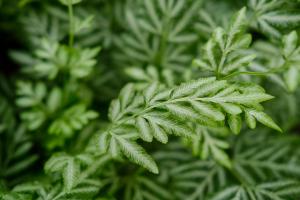Do Water Plants Need Nutrients Added?
Water plants, like any other plants, require nutrients to grow and prosper. However, the correct amount and type of nutrients are essential for aquatic plants to survive. In this article, we will examine the importance of nutrients for water plants and whether or not they require additional nutrients.
What Are Nutrients?
Nutrients are a combination of essential elements that plants require for growth and development. There are two categories of nutrients, macronutrients, and micronutrients. Macronutrients include nitrogen, phosphorus, and potassium, while micronutrients consist of iron, copper, zinc, and other trace elements.
Do Water Plants Require Nutrients?
Yes, water plants require nutrients to grow healthy, and in some instances, adding nutrients is essential for their survival. However, the type and amount of nutrients depend on the species of the plant and the environment it is growing in. Aquatic plants rely heavily on the water they grow to acquire their nutrients, which is why the composition of the water is essential.
How Do You Determine If Additional Nutrients Are Necessary?
Several factors dictate if a water plant requires additional nutrients. These factors include water chemistry, the amount of light the plant receives, the type of substrate it is growing in, and the species of the plant. Testing the water chemistry is an excellent way to determine if additional nutrients are necessary. If primary nutrients like nitrogen, phosphorus, and potassium are low or nonexistent, it is an indication that the plant may require additional nutrients.
What Happens If Water Plants Don't Receive Enough Nutrients?
Without adequate nutrients, water plants will not thrive and may begin to show visible signs of malnutrition. Stunted growth, yellowing leaves, and wilting are some of the symptoms of malnutrition in water plants. Additionally, aquatic plants that don't receive enough food will become weak, making them more susceptible to disease and infestation.
How Do You Add Nutrients to Water Plants?
If nutrient deficiencies are present, there are various ways to add nutrients to the water. One of the most common ways is by using fertilizers specifically designed for aquatic plants. These fertilizers contain a balanced blend of macronutrients and micronutrients, which are essential for the plants' growth. It's essential to choose a fertilizer that suits the species of the plant, as some plants require specific nutrients or may be sensitive to them.
Another way to add nutrients to the water is by using fish waste or compost, which contains several beneficial elements like nitrogen, phosphorus, and potassium. The use of fish waste or compost in a water garden, however, should be used with care, as they can trigger algae growth and other water quality issues.
Conclusion
In conclusion, water plants require nutrients to thrive, and ensuring the right nutrients are present is essential for their survival. Adequate light, the correct substrate, species and water chemistry, and properly selected fertilizers are all essential elements for happy and healthy water plants. By providing the right amounts and types of nutrients, you can achieve success with any aquatic planting endeavor.

 how many times do yo...
how many times do yo... how many planted tre...
how many planted tre... how many pine trees ...
how many pine trees ... how many pecan trees...
how many pecan trees... how many plants comp...
how many plants comp... how many plants can ...
how many plants can ... how many plants and ...
how many plants and ... how many pepper plan...
how many pepper plan...
































